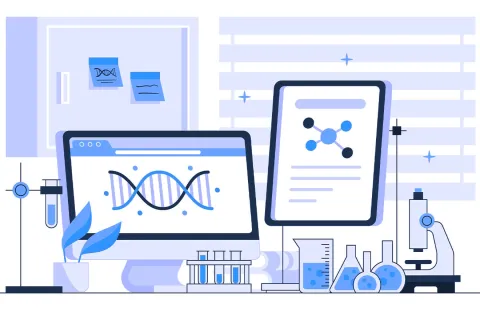
Introduction:
In the dynamic realm of pharmaceuticals, the integrity of bioavailability (BA) and bioequivalence (BE) studies serve as key players for successful drug development. These studies not only determine the efficacy and safety of new drug candidates but also play a pivotal role in securing Regulatory approval, particularly from the FDA. Recognizing the critical importance of data integrity in these studies, we embark on a journey to explore the FDA's draft guidance on data integrity for in vivo BA/ BE studies and shed light on its implications for organizations.
Importance of Data Integrity:
Data integrity lies at the heart of BA/ BE studies, serving as the cornerstone of reliable and credible results. In the context of pharmaceutical research and development, where the patient safety is paramount, ensuring the accuracy, completeness, and reliability of data is non-negotiable.
Here's why data integrity is of utmost importance in BA/ BE studies:
1. Foundation of Regulatory Approval: BA/ BE studies form a crucial part of the Regulatory submission package required for approval by Regulatory agencies like the FDA. Any discrepancy or inconsistency can delay market entry and potentially impacting patient access to vital medications.
2. Patient Safety and Well-being: The data generated from BA/ BE studies directly influence decisions regarding drug dosages, formulations, and administration routes. Inaccurate or unreliable data could lead to incorrect dosing regimens, compromising patient safety and well-being.
3. Scientific Validity and Credibility: Data integrity is essential for upholding the scientific validity and credibility of BA/ BE studies. Valid, reliable, and reproducible data are fundamental to the advancement of scientific knowledge and the development of evidence-based medical practices.
4. Ethical Considerations: Ensuring data integrity in BA/ BE studies is not only a Regulatory requirement but also an ethical obligation. It is imperative to protect the rights and well-being of study participants by accurately representing study outcomes and adhering to ethical research practices.
5. Risk Management and Decision-making: Reliable data are essential for effective risk management and informed decision-making throughout the drug development process. From formulation optimization to post-marketing surveillance, accurate data facilitate risk assessment and mitigation strategies.
6. Legal and Regulatory Compliance: Data integrity is a legal and Regulatory requirement enforced by Regulatory authorities worldwide. Failure to maintain data integrity can result in severe consequences, including Regulatory sanctions, product recalls, and legal liabilities.
Key Recommendations for MAH/ Applicants:
The FDA's latest draft guidance outlines a series of recommendations for applicants, placing the onus on them to ensure the data quality and integrity. Here are some key takeaways:
- Testing Site Selection: Applicants must meticulously select testing sites with a proven track record and robust quality management systems to ensure compliance with Regulatory requirements.
- Monitoring and Oversight: Implementing a risk-based approach to monitoring study conduct enables applicants to identify potential areas where human intervention could compromise data integrity.
- Audits: Regular audits serve as a cornerstone for verifying compliance with the monitoring plan and ensuring that testing sites maintain data integrity throughout the data lifecycle.
- Documenting and Communicating Audit Findings: Detailed documentation of audit findings is imperative, facilitating timely review and follow-up on any issues identified during audits.
- Quality Management System: Establishing a comprehensive quality management system encompassing data governance, records management, training, access and privileges, audit trails, and quality assurance and control is essential for ensuring data integrity.
Importance of Regulatory Partner
In navigating the intricacies of data integrity in BA/ BE studies, the role of a Regulatory partner cannot be overstated. Regulatory partners like Freyr offer invaluable support in interpreting Regulatory guidance, ensuring compliance with Regulatory standards, and streamlining submission processes. By leveraging their expertise and experience, organizations can navigate the Regulatory landscape with confidence, safeguarding product integrity and ensuring continued compliance with evolving Regulatory requirements.
Conclusion:
With the latest FDA's draft guidance on data integrity for in vivo BA/ BE studies, it highlights that data integrity is not merely a Regulatory obligation but a testament to an organization's commitment to excellence and patient safety. By embracing these recommendations, organizations can bolster their credibility, increase the likelihood of successful drug approvals, and ultimately contribute to the advancement of public health. A Regulatory partnership in such endeavour can seamlessly navigate the firms on the compliance path.









